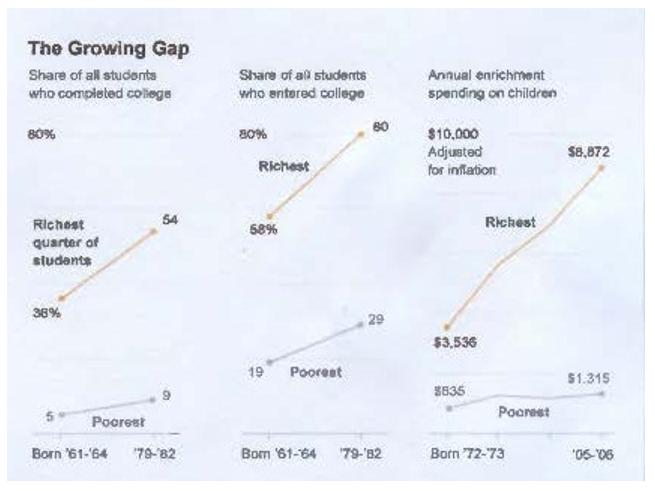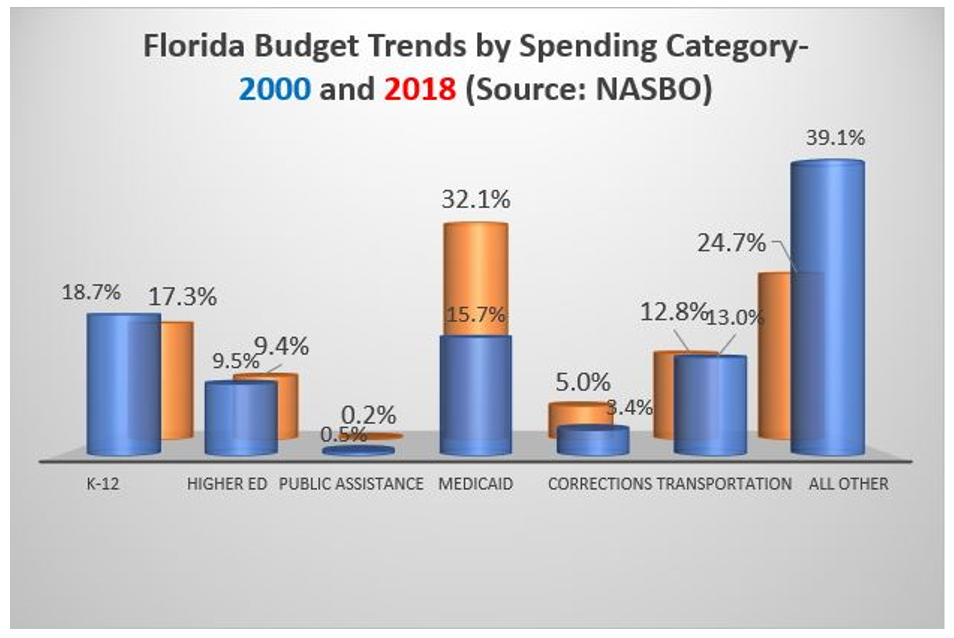
Editor’s note: Today, we offer Part 2 of a two-part post from redefinED executive editor Matt Ladner. You can read Part 1 here. Ladner’s commentary ends our series commemorating the 20th anniversary of the K-12 reforms launched by Florida Gov. Jeb Bush, collectively known as the A+ accountability plan.
One challenge to several of the A+ reforms is that they lack a natural constituency, which makes them politically vulnerable. The photo above is a good example of a natural constituency.
Not all policies, even worthy ones, necessarily animate people to appear at a state capitol in vast throngs. Bill de Blasio’s new administration, for instance, cast productive school grading and third-grade literacy policies aside without breaking a sweat and (lamentably) nary a murmur of protest. You can see what resulted when the mayor (who by his own confession “hates” charter schools) took them on here.
The most basic rule of politics is that organized beats unorganized every day of the week and twice on Sunday. Sadly, the folks who oppose most K-12 solutions – other than “hurl more money at the system and hope for the best” – have a high degree of political organization and engagement. They tend to have sympathetic allies working in bureaucratic agencies and commissions.
State law can attempt to compel them to do things but has a hard time compelling them to do something effectively. The families who have benefitted from state literacy policies or school grades largely are unaware of that fact, and thus do not constitute an effective constituency to defend or extend such policies.
The Florida Reading Scholarship, a recent program providing families with struggling readers funds to purchase services for them, might suggest a way forward. This program is relatively new and provides only a small subsidy — $500 — to students with a large problem (poor literacy skills). A primitive prototype version of this policy failed in an entirely predictable fashion when the No Child Left Behind Act funded the program through district budgets and left them in charge of program administration. You don’t need a Ph.D. in game theory to guess how that worked out.
You have to admit our technologies are getting better all the time. Now we can envision a supplemental services program that can interact with parents directly. Despite the many challenges that lay ahead in making the Florida Reading Scholarship program a success, a lack of a natural constituency would not be one of them. Onward.
Upper income families have engaged in multi-vendor education out of their own pocketbooks with a growing frequency (see trend on the far right, below). This also seems to be working out relatively well on the outcomes side of things (see two charts on the left).

A $500-per-year scholarship for struggling readers is only a small step in attempts to address the glaring equity issue in the chart above. But the first step is the most important step, and once again, Florida is taking that first step.
Right about now, we don’t even know how much of the differences seen in education outcomes are the result of school effectiveness, or lack thereof, and how much is due to what we see going on in the right side of the chart. Put me down for some of both, but hopefully future research will give guidance.
If you lived in normal times, you might think about working out the kinks to the Florida Reading Scholarship and going big with it if the results seemed promising. Just as a reminder however, the budget math looks unforgiving:

Grandma and Grampa Boomer already have called dibs on a great deal of expected revenue growth in the form of health spending; the middle of the chart indicates it’s already started. This means you’ll have to rely upon increases in the productivity of spending in the years ahead. Usually, this means adopting technologies to increase the productivity of labor, but this is easier said than done in the public sector.
Don’t feel overly daunted. Florida’s A+ plan increased the productivity of K-12 spending in a variety of ways after all. The young Florida adults in the early stages of their careers were far better educated than older generations. Florida’s public pensions are in relatively good shape. If you were, say, New York, none of this would be true, and you would have been spending approximately twice as much on per-pupil K-12 results and would not have gotten results as good as the ones you actually achieved.
So you need only increase the productivity of public spending in a politically sustainable fashion while the country struggles to cope with large imbalances in entitlement programs. Your ancestors had to stare down nuclear annihilation after defeating global fascism, which came right after the biggest global economic depression in human history.
See? It really is getting better all the time.


